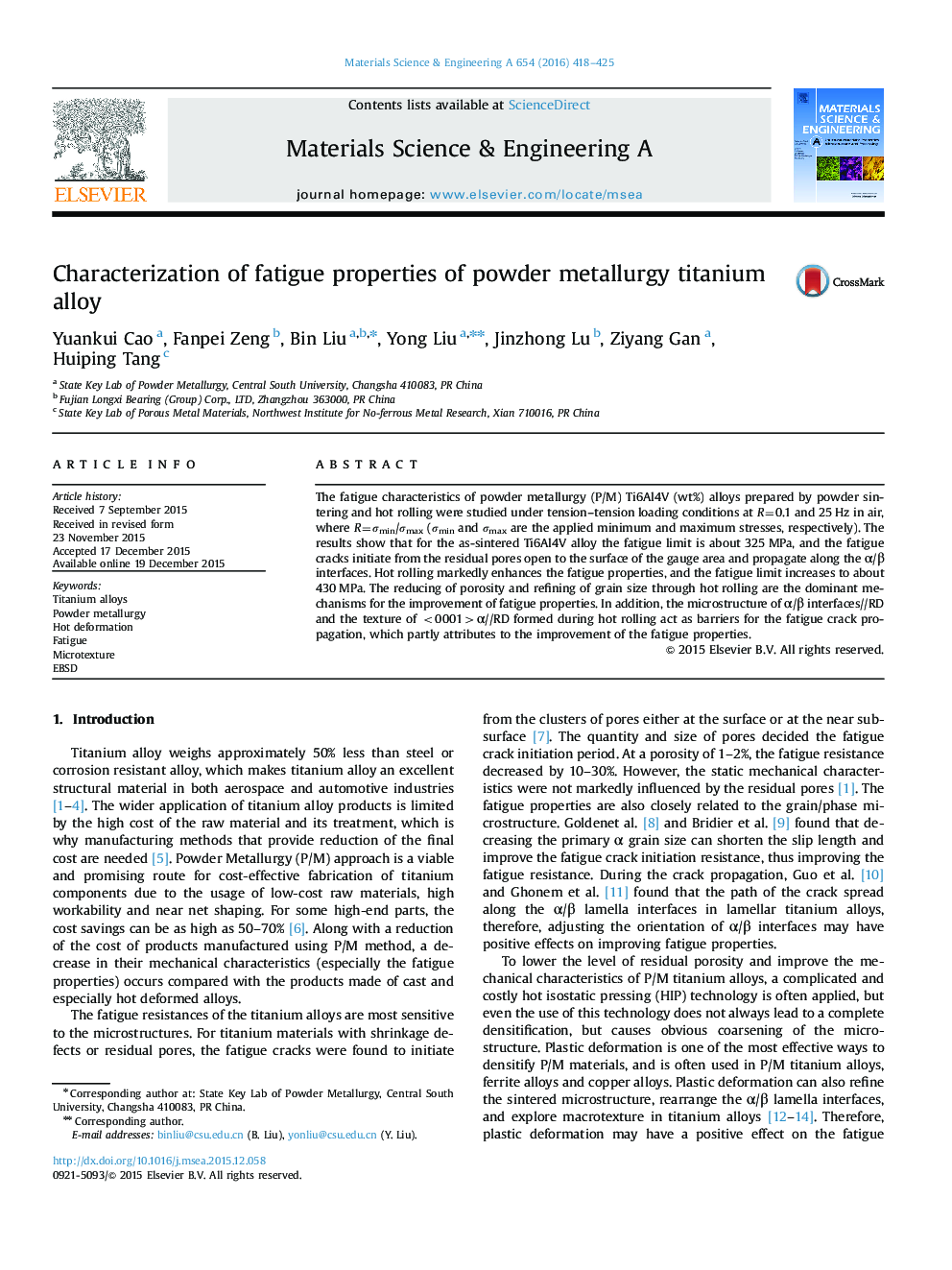| Article ID | Journal | Published Year | Pages | File Type |
|---|---|---|---|---|
| 7975741 | Materials Science and Engineering: A | 2016 | 8 Pages |
Abstract
The fatigue characteristics of powder metallurgy (P/M) Ti6Al4V (wt%) alloys prepared by powder sintering and hot rolling were studied under tension-tension loading conditions at R=0.1 and 25 Hz in air, where R=Ïmin/Ïmax (Ïmin and Ïmax are the applied minimum and maximum stresses, respectively). The results show that for the as-sintered Ti6Al4V alloy the fatigue limit is about 325 MPa, and the fatigue cracks initiate from the residual pores open to the surface of the gauge area and propagate along the α/β interfaces. Hot rolling markedly enhances the fatigue properties, and the fatigue limit increases to about 430 MPa. The reducing of porosity and refining of grain size through hot rolling are the dominant mechanisms for the improvement of fatigue properties. In addition, the microstructure of α/β interfaces//RD and the texture of <0001>α//RD formed during hot rolling act as barriers for the fatigue crack propagation, which partly attributes to the improvement of the fatigue properties.
Related Topics
Physical Sciences and Engineering
Materials Science
Materials Science (General)
Authors
Yuankui Cao, Fanpei Zeng, Bin Liu, Yong Liu, Jinzhong Lu, Ziyang Gan, Huiping Tang,
